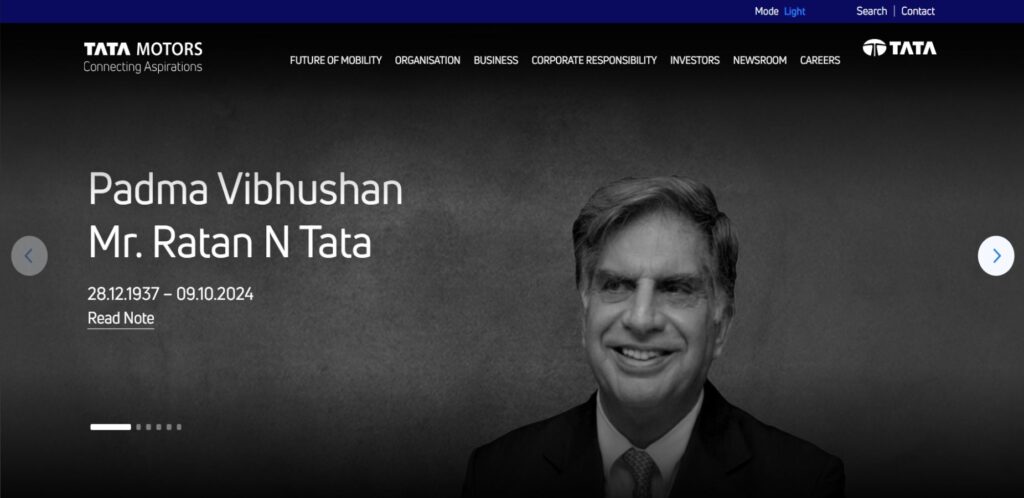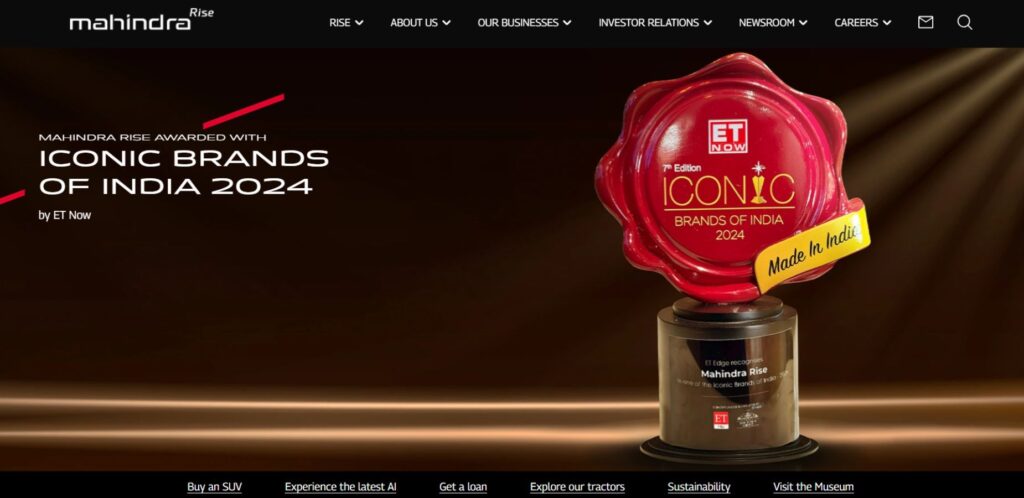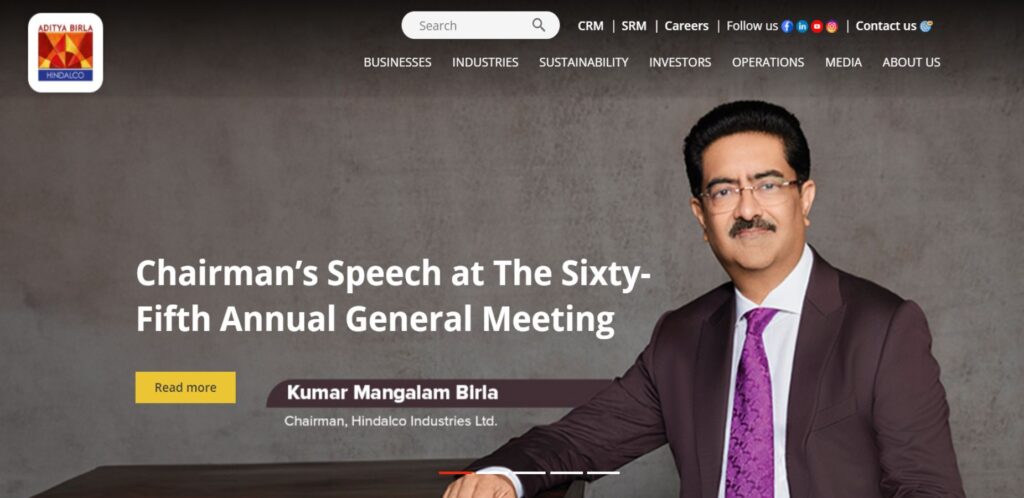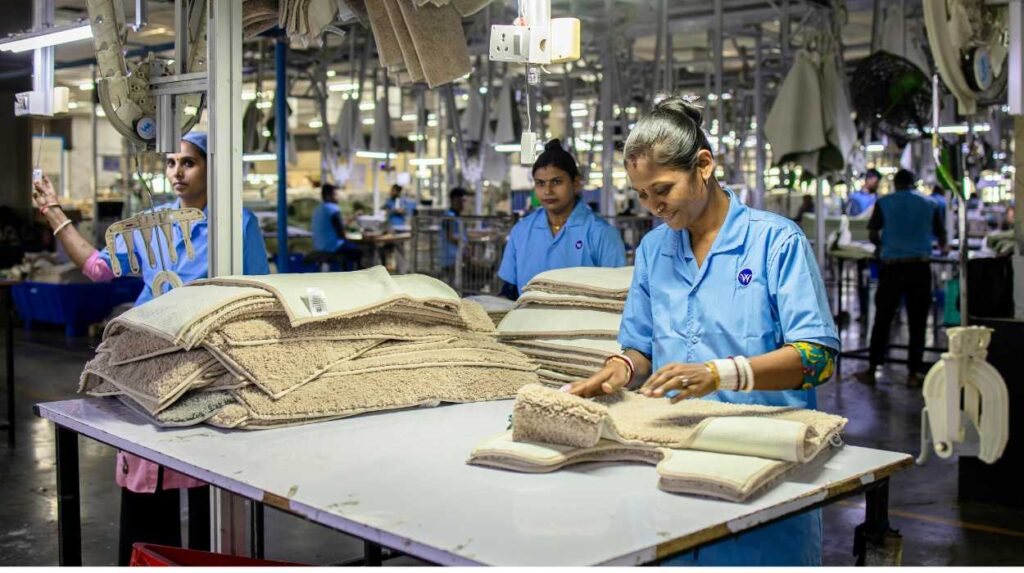Manufacturing in India has long been the backbone of the country’s industrial landscape, providing jobs, fostering economic growth, and contributing significantly to its GDP. The manufacturing sector is diverse, encompassing industries like automotive, textiles, machinery, pharmaceuticals, and electronics, and plays a pivotal role in making India one of the world’s fastest-growing economies.
Manufacturing companies in India are special for several reasons. First, the sector benefits from a large and cost-effective labour pool, enabling these companies to produce goods at competitive prices. Secondly, India’s strategic location gives these manufacturing companies access to vast markets, both domestically and across Asia, Europe, and Africa. Third, the Make in India initiative launched by the government has spurred investments, improved infrastructure, and eased regulatory hurdles, encouraging both local and foreign manufacturing companies in India to set up operations. Many leading manufacturing companies in Mumbai are also driving this growth, serving as vital contributors to the nation’s industrial success.
One of the key reasons for the growth of the manufacturing sector is India’s abundant natural resources. Whether it’s the availability of raw materials like iron ore, coal, and cotton, or a favourable climate for industries like food processing, the country provides numerous advantages for manufacturers. Additionally, government policies aimed at boosting manufacturing output, such as the Production Linked Incentive (PLI) scheme, have been crucial in driving innovation and investment in this sector.
Overview of India’s Manufacturing Landscape
The manufacturing sector has shown tremendous resilience with Gross Value Added (GVA) growing by 26.6% in 2021-22 led by sturdy growth in major sectors such as basic metals, pharmaceuticals, motor vehicles. India Manufacturing Market will grow by 7.26 percent CAGR to have USD 1.62 trillion in the year 2025 and USD 2.30 trillion in 2030. The manufacturing industry in India has consistently stagnated at 15-16 percent of the GDP of India with the Indian government taking an active role in enhancing the future of manufacturing in the country to fulfill the economic diversification and employment challenges.
Production in India has been the soul of the Indian industrial environment, which has given employment, economic development and increased the GDP of the country. The manufacturing industry is heterogeneous in nature with industries such as automotive, textile, machinery, pharmaceutical, and electronic industries and is a significant contributor to the growth of India into one of the fastest-growing economies in the world. Moreover, maintaining updated company listings helps stakeholders, investors, and customers easily access and evaluate the various players within these diverse manufacturing sectors.
Applications of Manufacturing Across Sectors
Manufacturing in India has widespread applications across a variety of sectors. It supports various other industries as well with its services. Here’s a closer outlook on various other possibilities where manufacturing plays a key role in assisting other industries:
- Automotive Industry: India is one of the largest producers of automobiles globally. The manufacturing of vehicles, including two-wheelers, four-wheelers, and heavy trucks, plays a crucial role in job creation and export.
- Textiles and Apparel: India is a global hub for textile and garment manufacturing. The sector not only serves domestic demand but also caters to international markets, contributing significantly to the country’s export revenue.
- Pharmaceuticals: India is known as the “pharmacy of the world,” with a large share of global pharmaceutical production. The manufacturing of generic drugs, vaccines, and medical equipment supports both local healthcare needs and global supply chains.
- Consumer Electronics: With the rise of digitalization, manufacturing in the electronics sector has seen exponential growth. Mobile phones, televisions, and household appliances are being produced at scale to meet growing consumer demand.
- Renewable Energy: The manufacturing of solar panels, wind turbines, and other renewable energy equipment supports India’s ambition to become a global leader in green energy solutions.
- Machinery and Equipment: From construction machinery to industrial tools, India’s manufacturing sector plays a pivotal role in producing the equipment necessary for infrastructure development and other industries.
- Food Processing: The manufacturing sector also supports India’s vast agricultural industry by providing machinery and technology for food processing, packaging, and storage, which helps reduce wastage and improves food security.
List Of Manufacturing Companies in India
Here’s a closer look at some of the leading manufacturing companies in India that are shaping the country’s industrial landscape.
1. Tata Motors Ltd

Tata Motors, part of the Tata Group, is one of India’s largest and most recognizable automotive manufacturers. Founded in 1945, the company produces a wide range of vehicles, including cars, trucks, buses, and military vehicles. Tata Motors is known for its innovation and engineering excellence, having developed India’s first indigenous passenger car, the Tata Indica, and later the world’s most affordable car, the Tata Nano. With a strong presence in both the domestic and international markets, Tata Motors continues to be a pioneer in India’s automotive sector.
Founded In: 1945
Headquarters: Mumbai, Maharashtra, India
Key Products:
- Passenger cars (Tiago, Nexon, Harrier, Safari series)
- Trucks (buses, pickups)
- Electric cars (Nexon EV, Tigor EV)
- Defense and military vehicles
- Automobile components and parts
Industry: car manufacture and engineering
Significance to Indian Economy: Tata motors is among the largest automobile companies in India, providing massive employment, exports and technological empowerment to the automotive industry and also sustaining the transport system in India.
Official Website: https://www.tatamotors.com/
2. Reliance Industries Ltd

Reliance Industries, founded by Dhirubhai Ambani in 1966, is a diversified conglomerate that plays a key role in India’s manufacturing sector, particularly in petrochemicals, refining, and textiles. Reliance’s manufacturing operations are supported by some of the world’s largest and most integrated facilities, particularly in the oil and gas sector. As one of the top Manufacturing Companies in India, The company’s entry into consumer goods and telecom with Reliance Jio has further expanded its manufacturing capabilities in areas like electronics and fibre optics.
Founded In: 1966
Headquarters: Mumbai, Maharashtra, India
Key Products:
- Refining products and Petrochemicals
- E&P of oil and gas
- Textiles and polyester fibres
- Telecommunications services (Jio)
- Consumer goods and retailing
Industry: Diversified conglomerate, specializing in energy, petrochemicals and telecommunications
Significance to Indian Economy: Reliance Industries is the biggest revenue earning company in the Indian corporate world and it contributes to the Indian GDP, exports and technology development in various sectors.
Official Website: https://www.ril.com/
3. Mahindra & Mahindra Ltd

Mahindra & Mahindra, established in 1945, is a leader in the automotive and tractor manufacturing sectors. It is the world’s largest producer of tractors, playing a vital role in supporting India’s agricultural economy. The company has diversified into automotive manufacturing, producing SUVs, electric vehicles, and heavy commercial vehicles. Mahindra’s commitment to innovation is evident in its focus on electric mobility and sustainability.
Founded In: 1945
Headquarters: Mumbai, Maharashtra, India
Key Products:
- Farm equipment and tractors
- SUVs Sport Utility Vehicles
- Electric vehicles/components
- Commercial vehicles
- Military and aviation machineries
Industry: Farm and automotive equipment manufacturing
Significance to Indian Economy: Mahindra is the biggest tractor manufacturing company in the world that supports the agricultural economy of India, as well as the automotive industry and clean mobility solutions.
Official Website: https://www.mahindra.com/
4. Bajaj Auto Ltd

Bajaj Auto, founded in 1945, is another major player in India’s automotive sector. As one of the top Manufacturing Companies in India, this is Known primarily for its two-wheelers and three-wheelers, Bajaj has a strong export market, making it the world’s third-largest motorcycle manufacturer. The company’s focus on producing affordable, high-quality motorcycles has made it a household name in India and a leading player in markets across Africa, Latin America, and Southeast Asia.
Founded In: 1945
Headquarters: Pune, Maharashtra, India
Key Products:
- Motorcycles (Pulsar, Dominar and Platina series)
- Three-wheelers (auto-rickshaws)
- Two-wheelers and electric bikes
- Automotive components
- Sell cars to the foreign markets
Industry: Two- and three-wheeler manufacturing
Significance to Indian Economy: The Bajaj Auto is the third biggest manufacturer of motorcycle worldwide and plays a great role in providing India with export revenue as well as giving people cheaper modes of transportation both locally and in the international market.
Official Website: https://www.bajajauto.com/
5. Hero MotoCorp Ltd

Hero MotoCorp, established in 1984, is the world’s largest manufacturer of two-wheelers. The company’s extensive manufacturing facilities across India produce millions of motorcycles and scooters each year. Hero’s commitment to innovation, coupled with its focus on fuel efficiency and affordability, has helped it maintain its position as a leader in the two-wheeler market.
Founded In: 1984
Headquarters: New Delhi, India
Key Products:
- Motor bikes ( Splendor, HF Deluxe, passion series)
- Maestro, Pleasure, Destini series of scooters
- Electric two-wheelers
- Spare parts and accessories
- Two-wheeler components
Industry: Manufacture of two-wheelers
Significance to Indian Economy: Hero MotoCorp is the largest two-wheeler manufacturer in the world, and the company provides affordable means of mobility, employment and good export earnings to the Indian Economy.
Official Website: https://www.heromotocorp.com/
6. Hindalco Industries Ltd

Hindalco, part of the Aditya Birla Group, is a leading manufacturer of aluminium and copper products. The company operates some of the world’s largest aluminium rolling and copper smelting facilities, providing essential materials for industries like automotive, construction, packaging, and electronics. Hindalco’s emphasis on sustainability and recycling has made it a key player in India’s efforts to build a circular economy.
Founded In: 1958
Headquarters: Mumbai, Maharashtra, India
Key Products:
- Aluminium products (sheets, foils, extrusions)
- Copper goods and Cathodes
- Bauxite and alumina
- Automotive and packaging rolled products
- Alloy and specialty metals
Industry: Non-ferrous metals production
Significance to Indian Economy: Hindalco is the biggest aluminium manufacturer in India, and also a big manufacturer of copper, which supplies crucial raw materials to the automotive, construction, packaging and electronic sectors and is a source of export revenues.
Official Website: https://www.hindalco.com/
7. Larsen & Toubro (L&T)

Larsen & Toubro is a giant in engineering, construction, and manufacturing, providing solutions across sectors like infrastructure, defence, and heavy machinery. Founded in 1938, L&T has been instrumental in developing India’s industrial and civil infrastructure, from roads and bridges to power plants and defence systems. L&T’s manufacturing arm produces high-quality machinery and equipment that support the nation’s growth.
Founded In: 1938
Headquarters: Mumbai, Maharashtra, India
Key Products:
- Hard engineering machines
- Construction and infrastructure equipment
- Defense systems and equipments
- Distribution and transmission equipment Power
- Automation systems in industries
Industry: Manufacturing, engineering and construction
Significance to Indian Economy: L&T plays a key role in building the Indian industrial and civil infrastructures and is a part of leading infrastructural projects, defense, and technology development in various sectors.
Official Website: https://www.larsentoubro.com/
8. Bharat Heavy Electricals Ltd (BHEL)

BHEL is one of India’s largest engineering and manufacturing enterprises in the energy sector. Founded in 1964, the company is a key player in the production of power plant equipment, transmission systems, and electric locomotives. As one of the top Manufacturing Companies in India, BHEL’s contributions to India’s power generation capacity have been critical to the country’s industrial development.
Founded In: 1964
Headquarters: New Delhi, India
Key Products:
- Boilers, turbines, generators in power plants.
- Transmission/ distribution equipment
- EMUs and electric locomotives
- Equipment and industrial systems
- Renewable energy machinery
Industry: Heavy electrical equipment manufacturer
Significance to Indian Economy: BHEL is one of the largest engineering and manufacturing companies in India that plays an important role in the power generation capacity of the country, and in its industrial growth, and is a major contributor to energy security.
Official Website: https://www.bhel.com/
9. Maruti Suzuki India Ltd

Maruti Suzuki is India’s leading automobile manufacturer, specialising in affordable and fuel-efficient cars. Established in 1981, the company has transformed India’s automotive landscape, becoming a dominant player in the passenger vehicle segment. As one of the top Manufacturing Companies in India, Maruti’s manufacturing facilities are known for their efficiency, with the company producing millions of cars each year to meet domestic and international demand.
Founded In: 1981
Headquarters: New Delhi, India
Key Products:
- Passenger cars (Alto, swift, baleno, Dzire line-ups)
- Minivan (LUV, Ertiga) Compact SUVs (Vitara Brezza, Ertiga)
- Electric and CNG cars
- Automotive components
- Ship vehicles to other countries
Industry: Manufacture of passenger vehicles
Significance to Indian Economy: Maruti Suzuki is the largest passenger car manufacturer in India and with its presence in the automotive industry in India has an important role to play in job creation, personal mobility of millions of Indians.
Official Website: https://www.marutisuzuki.com/
10. Amul (GCMMF)

Amul, operated by the Gujarat Cooperative Milk Marketing Federation, is a major player in India’s food processing and dairy sector. Established in 1946, Amul has revolutionised India’s dairy industry, creating one of the world’s largest dairy cooperatives. Amul’s extensive manufacturing capabilities allow it to produce a wide range of dairy products, from milk and butter to cheese and ice cream.
Founded In: 1946
Headquarters: Anand, Gujarat, India
Key Products:
- Milk and milk product
- Butter, cheese and ghee
- Frozen dairy products and ice creams
- Dairy-based beverages
- Nutritional products
Industry: Dairy and food processing
Significance to Indian Economy: Amul has one of the largest dairy cooperatives in the world, and transformed the dairy industry in India, benefiting millions of farmers and also providing extensive benefits to the rural economy and food security.
Official Website: https://www.amul.com/
Also Read: Amul Franchise Cost in India
Bonus: ITC Limited

ITC Limited, founded in 1910, is a diversified conglomerate with a strong presence in the manufacturing of fast-moving consumer goods (FMCG), paperboards, packaging, and agri-business. As one of the top Manufacturing Companies in India, The company’s extensive network of manufacturing facilities enables it to produce high-quality products across sectors like food, personal care, and paper products, contributing to India’s self-reliance in various industries.
Founded In: 1910
Headquarters: Kolkata, West Bengal, India
Key Products:
- FMCG (Fast-Moving Consumer Goods)
- Tobacco and cigarettes
- Packaging materials and paper
- Farming and foodstuff
- Personal care/lifestyle products
Industry: Diversified conglomerate in FMCG, paper and agri-business
Significance to Indian Economy: ITC Limited is one of the most popular FMCG companies in India and it significantly contributes to rural livelihoods, agricultural value chains, and sustainable business practices in India in addition to collecting large shares of tax revenues.
Official Website: https://www.itcportal.com/
Conclusion
India’s manufacturing sector is a vital backbone of economic growth, providing jobs, driving innovation, and contributing to the country’s GDP. From automotive and textiles to pharmaceuticals and electronics, India’s manufacturing capabilities are diverse and dynamic. The companies mentioned above represent just a few of the key players shaping the future of manufacturing in India. Proving once and for all that the manufacturing industry is a versatile field with larger potential towards growth both as a sector and for a nation.
From automotive giants like Tata Motors and Mahindra & Mahindra to conglomerates like Reliance Industries and ITC, manufacturing companies in India are driving the nation forward, creating opportunities and contributing to global supply chains. As India continues to industrialise and embrace advanced technologies, the manufacturing sector will undoubtedly play an increasingly vital role in shaping the future of the Indian economy.
FAQs
1. What is the importance of the manufacturing sector in India?
The manufacturing sector is crucial for a country’s economic growth. The sector is capable of job creation, and export activities. All this contributes significantly to India’s GDP.
2. Which industries benefit most from manufacturing in India?
Industries in various sectors such as automotive, textiles, pharmaceuticals, electronics, and renewable energy benefit significantly from manufacturing in India.
3. How has the “Make in India” initiative impacted manufacturing?
The “Make in India” initiative has boosted manufacturing by encouraging investment. It also improves infrastructure and simplifies regulatory processes that make the industries more diverse and versatile in their production.
4. What are some challenges faced by the manufacturing sector in India?
Challenges include infrastructure bottlenecks, regulatory hurdles, and the need for technological advancement and skill development.
5. Which cities are known for their manufacturing industries in India?
Cities like Pune, Chennai, Bengaluru, Mumbai, and Coimbatore are known for their robust manufacturing industries.

